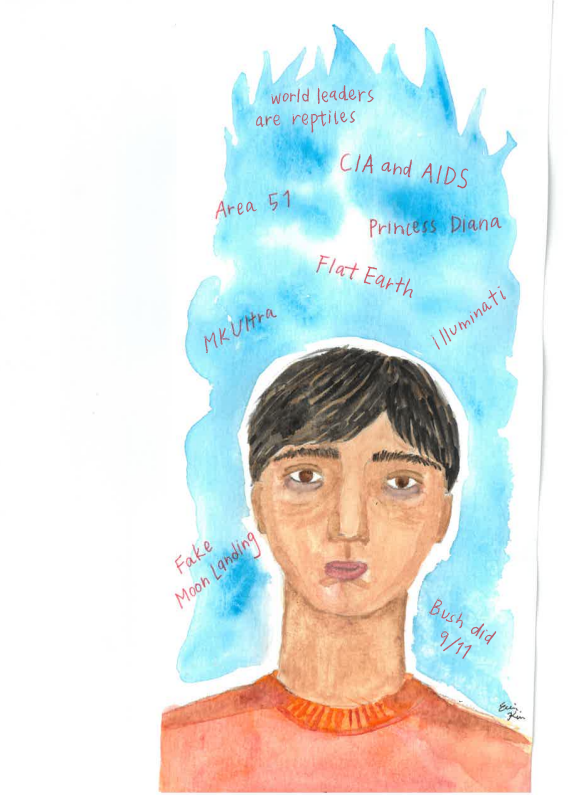We’ve all heard them. Bush did 9/11, the moon landing was staged, reptiles control the world, you name it. You’ve got to admit that there’s something strangely compelling about conspiracy theories, which is why more than half of Americans believe in at least one. But can these seemingly innocent alternative perspectives actually be harmful? Recent psychological research suggests that although some conspiracy theories may be harmless, certain social consequences of these theories deserve more serious attention.
It’s been proven that mere exposure to a conspiracy theory can make a person less prosocial and less likely to agree with factual scientific findings. For instance, studies have shown that people who read anti-government conspiracy theories are less likely to vote than those who read information disproving conspiracy theories. Similarly, people who read about climate change being a hoax express less interest in reducing their carbon footprint than those who read anti-conspiracy material or no material on climate change. Anti-vaccine conspiracy theories can discourage people from vaccinating their children against diseases, which is hazardous for obvious reasons. By making people feel powerless, conspiracy theories can significantly decrease social engagement and participation in society.
The list of repercussions does not end there. Conspiracy propaganda can have societal consequences as well, including aggression, right-wing extremism, racist attitudes against minority groups, and even political violence. A number of personality traits and qualities have been identified as being common among conspiracy theorists, which include, but are not limited to, cynicism, paranoia, distrust, and anxiety. Certain demographic factors also play a role in the types of people who fall susceptible to conspiracy theories. Those with lower levels of education tend to believe conspiracy theories more than the well-educated, since they are used to thinking in a more critical lens. Also, those at the extremes of their political orientation are more likely to endorse conspiracy theories, which has been especially prevalent in current politics.
What leads someone to believe in conspiracy theories? Studies show that a number of forces are responsible. According to a study by Applied Cognitive Psychology, conspiracy theorists tend to have one thing in common: they feel a lack of control over their lives. This makes sense, considering conspiracy theories often emerge during times of fear and uncertainty: following terrorist strikes, high-profile deaths, financial crises, and natural disasters. Jan-Willem van Prooijen, associate professor in social and organizational psychology at VU University Amsterdam, explains that if people feel they don’t have control over a situation, they’ll try to make sense of it in an alternative way. “The sense-making leads them to connect dots that aren’t necessarily connected in reality,” van Prooijen says.
In addition, “proportionality bias” has als been identified as a factor. Proportionality bias is our innate tendency to assume that big events can only have big causes. This is why many people feel uncomfortable about President John F. Kennedy falling victim to a lone gunman, and preferred to believe that he was the victim of a large-scale conspiracy.
Some level of skepticism is healthy for individuals to an extent, since people can’t be expected to agree with everything they are told. One can even go as far as to say that some conspiracy theories allow people to question social hierarchies and evoke new discussions. But that does not outweigh the fact that conspiracy theories are capable of compromising people’s stances on important topics like climate change and vaccination, and that they highlight people’s prejudices and impulses.
Lara Baskin
staff writer
Graphic: Erin Kim

